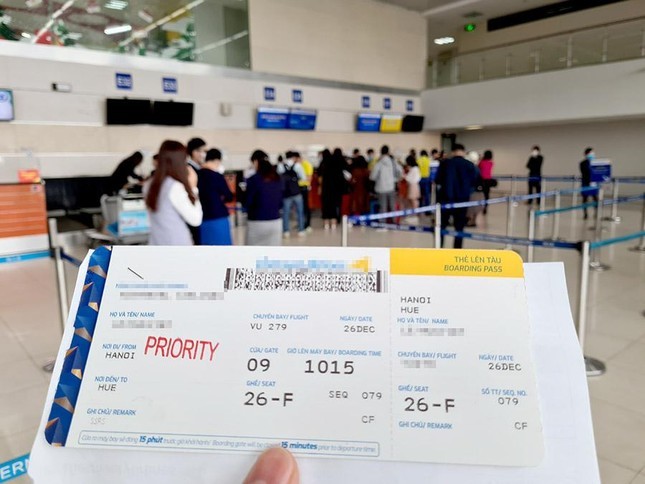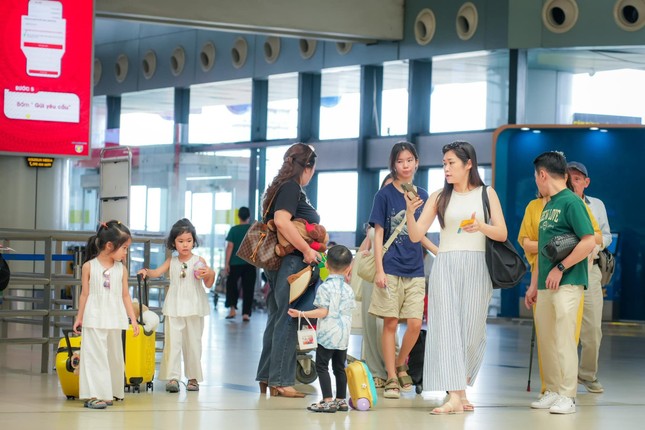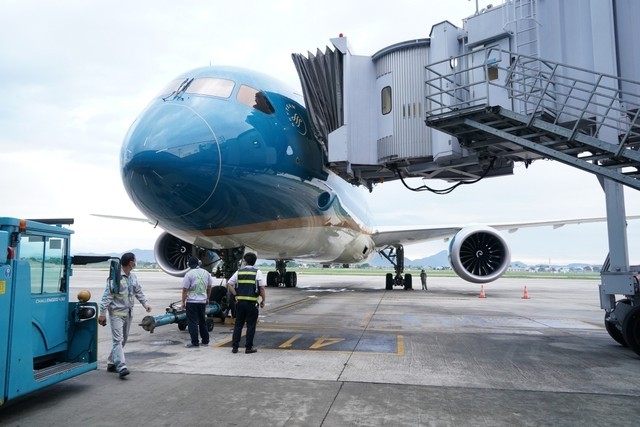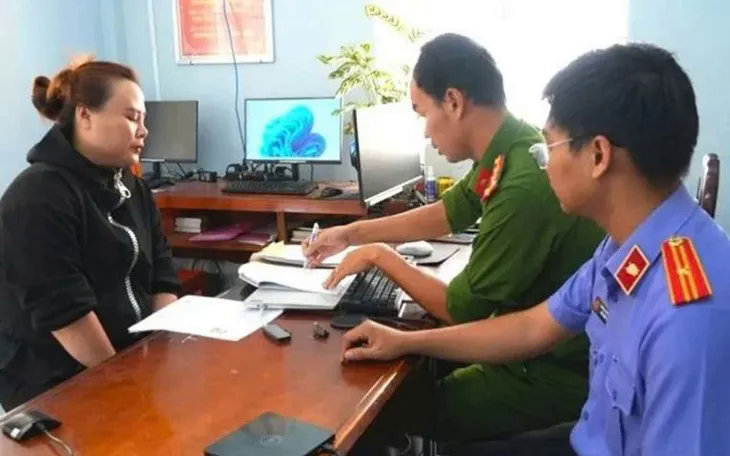Ups and Downs in Airfares on Popular Tourism Routes
During the May Day holiday (April 30th – May 1st), there were tensions regarding flight ticket prices on tourist routes. For example, on the Hanoi – Nha Trang route, a one-way ticket on April 27th cost over 2 million VND, while the return ticket on May 1st was priced at nearly 4 million VND. On the Hanoi – Quy Nhon route, there were no tickets available for the outbound flight on April 27th, while there were still many tickets left for the return flight on May 1st, with prices ranging from 3 to 5 million VND per ticket.

Tourists face difficulties in purchasing air tickets on tourist routes during April 27th – May 1st.
As the holiday season progresses, airfares tend to “cool down”. Specifically, the price of a one-way ticket on the Hanoi – Phu Quoc route on April 30th offered by Vietjet Air is 1.4 million VND, with many time slots available from 6am to 3pm. According to research, this price remained stable throughout the holiday, with some days seeing a drop to 1.1 million VND.
Compared to the peak period before the holiday, the Hanoi – Da Nang route also had reasonable prices, ranging from 1.3 million VND, catering to the needs of many tourists. One-way tickets on the Hanoi – Nha Trang/Quy Nhon route were priced between 1.5 and 1.8 million VND. Passengers have a wide range of airlines to choose from, including Vietjet Air, Vietnam Airlines, and Bamboo Airways. On the Hanoi – Ho Chi Minh City route, even on April 30th, passengers booking a one-way ticket could expect to pay no more than 2 million VND.
Passengers flying from Ho Chi Minh City to Quy Nhon, Da Nang, Vinh, and Thanh Hoa have several flight options with one-way fares starting from 1.4 million VND.
Factors Affecting Airfares
During the period of April 27th – May 1st, a large number of passengers traveled to tourist destinations at the beginning of the holiday and returned at the end, leading to a shortage of tickets.
Noi Bai International Airport in Hanoi reported that on April 27th, the number of domestic passengers passing through the airport reached 59,000. However, in the following days, this number dropped to around 49,000 and rose back to 57,000 on May 1st.

Domestic passenger traffic at Noi Bai Airport dropped significantly on April 28th and 29th. Photo: NIA.
The Civil Aviation Authority of Vietnam reported that statistics on seat reservations made by Vietnamese airlines on domestic flights during the May Day holiday (April 30th – May 1st) showed a clear pattern of uneven distribution of passenger traffic during peak hours and holidays.
Flights from the two major cities at either end of the country, Hanoi and Ho Chi Minh City, to other provinces have high booking rates at the beginning of the holiday, with a similar pattern observed on flights from these provinces to Hanoi/Ho Chi Minh City at the end of the holiday.
In addition, the extension of the May Day holiday to five days has led to a surge in demand for long-distance travel.
According to a survey, in mid-April, passengers had difficulty finding cheap airfares due to the proximity to the holiday. If planning a holiday during the holiday season, passengers should continuously monitor airfares a month in advance to ensure suitable pricing.
In fact, airlines typically offer a range of fares from low to high. When cheap fares sell out quickly, passengers booking later have fewer options, and those booking at the last minute will have to purchase higher-priced tickets. In foreign countries, air travelers tend to book their tickets early, sometimes six months to a year in advance to secure a wider selection and obtain cheaper fares, but Vietnamese travelers rarely do this.
On April 24th, the Da Nang delegation to the National Assembly held a meeting with constituents in preparation for the 7th session of the 15th National Assembly. At the meeting, many Da Nang constituents expressed concern over the high cost of domestic airfares, which they believed hindered the tourism industry during peak season.
Da Nang city leaders said they had discussed the issue with the Civil Aviation Authority of Vietnam. They were informed that the Airbus A321 Neo aircraft currently has some components undergoing maintenance. As required by the manufacturer, many aircraft have been recalled and suspended from service.
“Our domestic airlines primarily use this type of aircraft, which has led to a shortage of aircraft. This is a contributing factor to the recent increase in airfares,” said Mr. Tran Chi Cuong, Vice Chairman of the Da Nang City People’s Committee.

Domestic airlines face aircraft shortage.
Earlier, the Civil Aviation Authority of Vietnam reported that Boeing was experiencing technical problems with its new-generation 737 aircraft, leading to delays in aircraft deliveries to airlines. This shortage will exacerbate the issue of ensuring sufficient aircraft capacity for airlines, resulting in a reduction in seat availability on many routes.
Increasing costs, as well as requirements for fuel conversion, emission reduction, and the use of environmentally friendly materials, are putting pressure on the management and operational expenses of airlines, which in turn puts pressure on airfares. The average price of transportation fuels (gas, oil) has been hovering around 30-40 USD/fuel unit for some time now.
On May 3rd, the Ministry of Transport requested that the Civil Aviation Authority of Vietnam immediately review the situation and, if any irregularities are found, promptly issue directives, rectify the situation, and impose penalties as appropriate (if necessary); additionally, conduct inspections and audits of ticket sales, declarations, and price listings by airlines, and ensure that there are no violations in terms of price increases.
The Ministry of Transport requested that the Transport Department proactively monitor the situation and promptly advise the Ministry on directing relevant agencies and units to strengthen inspections of transportation activities and passenger services, implement measures to best meet the travel needs of the public, and stabilize airfares, ensuring that there are no illegal price increases, particularly during the upcoming summer peak season, based on the principle of balancing the interests of businesses and the needs of the public.











